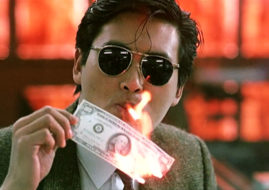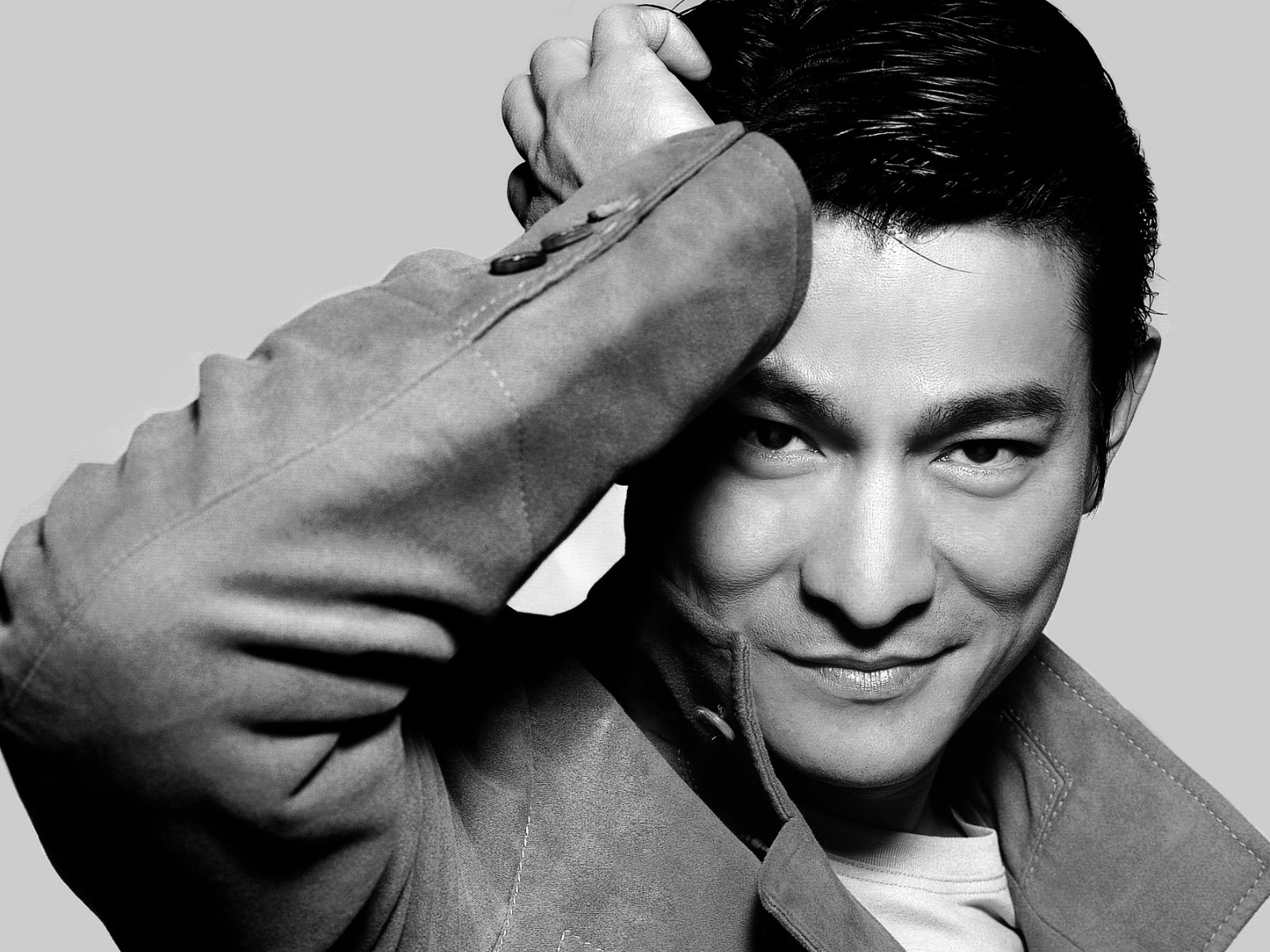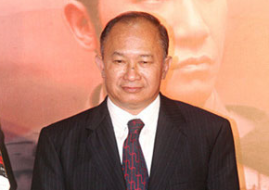Leslie Cheung Kwok-Wing
Leslie Cheung Kwok-Wing was born in Hong Kong on September 12, 1956; the youngest of ten children, his father was a successful tailor—and a largely unsuccessful father, as Leslie later recalled being a lonely and emotionally-neglected child. After receiving his education in both Hong Kong and Britain, Leslie went on to major in Textiles at Leeds University, but was called back to Hong Kong only a year later when his father became ill. Although his father hoped the young Leslie would take over the family business, Leslie’s destiny was changed forever when his performance of Don McLean’s “American Pie” earned him second place in the 1977 RTV Asian Song Contest. A year later the photogenic Leslie starred in his first movie—Erotic Dream of Red Chamber—and for the next four years he honed his acting skills in RTV television series.
He returned to the big screen in 1982, appearing in films for both the venerable Shaw Brothers and Hong Kong’s “New Wave” filmmakers; his performance in Patrick Tam’s Nomad as a drifting, uncertain young man earned him his first of eight nominations for Best Actor in the Hong Kong Film Awards. After releasing four CD’s, his 1984 song “Monica” (from the CD of the same name) won nearly every major Hong Kong music award, and his 1985 series of concerts established him as Asia’s biggest pop star.
Leslie followed that success with his performance in 1986’s A Better Tomorrow (directed by John Woo and produced by Tsui Hark), which not only became Hong Kong’s biggest film of the year, but also marked the Hong Kong film industry’s emergence into global cinema. A year later Leslie received his second Best Actor nomination for A Better Tomorrow 2, and also starred for producer Tsui Hark in A Chinese Ghost Story, which became a worldwide hit. After again winning all of the major music awards in 1987 for his song “No Mood to Sleep”, Leslie starred in Stanley Kwan’s 1988 arthouse hit Rouge, and also became the first Asian star signed to represent Pepsi Cola.
In 1989, Leslie was voted number one in Commercial Radio’s “Top Ten Most Beautiful People in Hong Kong,” and he shocked his fans when he revealed that he wanted to retire from music to concentrate on acting. His decision seemed to pay off, since in 1990 he won Best Actor for his performance as the sensual womanizer Yuddy in Wong Kar-Wai’s Days of Being Wild, and in 1993 he starred in Chen Kaige’s universally-acclaimed Farewell My Concubine, which earned an Academy Award nomination for Best Foreign Film and set a new standard for gay-themed films. As if to boldly demonstrate his diversity, that same year Leslie played a swaggering swordsman and lover to Brigitte Lin’s title character in Ronny Yu’s exquisite period fantasy The Bride With White Hair, and received a Hong Kong Film Awards Best Original Song nomination for “Hung Ngaan Baak Faat” (“Red Face White Hair”), which he not only performed but also wrote the music for. In 1994 Leslie was named Best Actor by the Hong Kong Film Critics Society, for his performances in Wong Kar-wai’s Ashes of Time, as well as He’s a Woman, She’s a Man, It’s a Wonderful Life and Long and Winding Road. 1995 and ‘96 saw Leslie give two of his funniest performances, first in Tsui Hark’s The Chinese Feast and then in Derek Yee’s Viva Erotica; 1995 also saw Leslie’s return to music, as he released four CD’s that year alone. As Hong Kong was being handed over from Britain to China in 1997, Leslie played a petulant gay lover adrift in Buenos Aires in Wong Kar-Wai’s Happy Together, garnering Best Actor nominations from both the Hong Kong Film Awards and Taiwan’s Golden Horse Awards, and in 2000 he cemented his status as Hong Kong’s preeminent gay icon when he dedicated a song during one of his concerts to his longtime partner Daffy Tong.
As the Hong Kong film industry experienced a slump in the early 2000’s, Leslie seemed to focus more on music, although his performances as a gun-obsessed psychotic in Double Tap and a troubled psychiatrist in Inner Senses garnered him more Best Actor nominations. On April 1, 2003, Leslie shocked his legions of fans by leaping from a 24th-floor balcony of a luxury hotel in downtown Hong Kong, leaving only a note that cited “depression.” His funeral services were attended by roughly 10,000 fans, and his passing was mourned by virtually every member of Hong Kong’s entertainment community (where he was known simply as “Gor-gor,” or older brother). As director Chen Kaige wrote in memorium, “Leslie was a rare flower in Hong Kong’s entertainment world, which only blossoms once in a century.”
—Lisa Morton
Select Filmography:
* Erotic Dream of Red Chamber (1978)
* Teenage Dreamers (1982)
* Nomad (1982)
* Behind the Yellow Line (1984)
* A Better Tomorrow (1986)
* A Chinese Ghost Story (1987)
* A Better Tomorrow 2 (1987)
* Rouge (1988)
* A Chinese Ghost Story 2 (1990)
* Days of Being Wild (1990)
* Once a Thief (1991)
* The Bride With White Hair (1993)
* The Eagle Shooting Heroes (1993)
* Farewell, My Concubine (1993)
* He’s A Woman She’s A Man (1994)
* Ashes of Time (1994)
* The Chinese Feast (1995)
* The Phantom Lover (1995)
* Temptress Moon (1996)
* Viva Erotica (1996)
* Happy Together (1997)
* The Kid (1999)
* Okinawa Rendezvous (2000)
* Double Tap (2000)
* Inner Senses (2002)





















